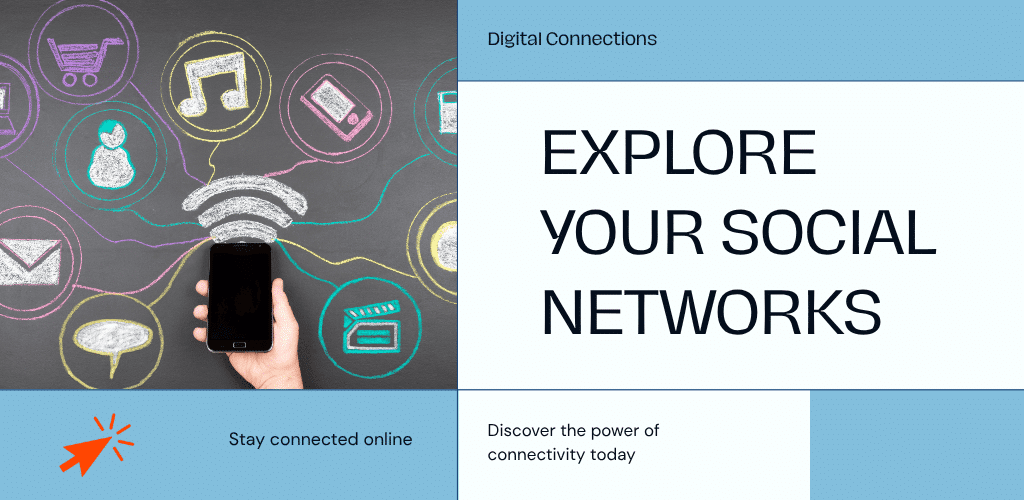Are you struggling to turn your blog into a profitable venture? You’re not alone. Many bloggers start with passion but struggle to monetize their efforts effectively. The good news? There’s a wealth of strategies waiting to be tapped.
From affiliate marketing and sponsored content to creating digital products and offering services, the possibilities are endless. But which strategy is right for you? Whether you’re just starting or looking to diversify your income streams, understanding the best blog monetization strategies is crucial for success in 2025 and beyond.In this comprehensive guide, we’ll explore 10 proven methods to monetize your blog, from leveraging advertising and email marketing to building membership models and maximizing profitability. We’ll also dive into the specific requirements for blog monetization and provide insights on how to monetize a WordPress blog effectively. Get ready to transform your blog from a passion project into a thriving online business!
Table of Contents
Understanding Blog Monetization

A. Definition and importance
Blog monetization is the process of generating revenue from a blog through various strategies and business models. It’s a crucial aspect of turning a passion project into a profitable venture. The importance of blog monetization lies in its potential to create passive income streams, allowing bloggers to earn money while sharing their expertise and content with their audience.
Key monetization methods include:
- Advertising
- Affiliate marketing
- Selling products or services
- Subscriptions and memberships
- Sponsored content
| Method | Description | Potential Income |
|---|---|---|
| Advertising | Selling ad space or using networks like Google AdSense | Varies based on traffic |
| Affiliate Marketing | Promoting products and earning commissions | Depends on niche and audience |
| Product Sales | Selling digital or physical products | Higher profit margins |
| Subscriptions | Offering premium content for a recurring fee | Stable, predictable income |
| Sponsored Content | Collaborating with brands for paid posts | Can be lucrative for influencers |
B. Key factors for successful monetization
To successfully blog monetization, consider these essential factors:
- High-quality content: Consistently deliver valuable and engaging posts
- Niche selection: Choose a specific focus that aligns with your expertise
- Audience understanding: Know your readers’ needs and preferences
- Traffic generation: Implement effective strategies to increase blog visitors
- Trust and credibility: Build a strong reputation in your niche
- Diversification: Utilize multiple monetization methods for stability
C. Assessing your blog’s potential
Before implementing blog monetization strategies, evaluate your blog’s potential:
- Analyze your current traffic and engagement metrics
- Identify your target audience and their purchasing habits
- Assess the competitiveness of your niche
- Review the quality and consistency of your content
- Determine your unique value proposition
- Consider your long-term goals and objectives
By thoroughly assessing these aspects, you can make informed decisions about which blog monetization strategies are most suitable for your blog and audience.
Now that we have covered the fundamentals of understanding blog monetization, let’s explore one of the most popular methods: Advertising Strategies. This approach can be an excellent starting point for bloggers looking to generate income from their platforms.
Advertising Strategies

Now that we’ve covered the fundamentals of blog monetization, let’s delve into specific advertising strategies that can help you generate income from your blog.
A. Display ads
Display ads are a common and relatively easy way to monetize your blog. These visual advertisements appear on your blog pages and can generate revenue based on impressions or clicks. Some popular display ad networks include:
| Ad Network | Pros | Cons |
|---|---|---|
| Google AdSense | Easy to set up, accessible | Strict policy enforcement |
| Mediavine | High payouts, creator-centric | Higher traffic requirements |
| Ezoic | AI-powered optimization | Learning curve for setup |
While display ads offer passive income potential, it’s important to note that they may negatively impact user experience and page load times, potentially affecting SEO.
B. Sponsored content
Sponsored posts involve partnering with brands to create promotional content for your blog monetization. This strategy can provide quick income but requires careful execution to maintain authenticity and reader trust. When considering sponsored content:
- Ensure the sponsored products align with your niche and audience interests
- Clearly disclose the sponsored nature of the content
- Maintain editorial control to preserve your blog’s voice and integrity
C. Affiliate marketing
Affiliate marketing allows you to earn commissions by promoting products through special links. This method can be highly lucrative, especially when aligned with your blog’s niche. Key points to consider:
- Choose products relevant to your audience
- Provide honest, valuable reviews and recommendations
- Disclose affiliate relationships transparently
- Diversify affiliate partnerships to reduce dependence on a single program
Popular affiliate networks include Amazon Associates and CJ Affiliate, offering a wide range of products to promote.
D. Native advertising
Native advertising seamlessly integrates promotional content into your blog’s regular format and style. This approach can be less disruptive to the user experience compared to traditional display ads. When implementing native advertising:
- Ensure the content provides value to your readers
- Maintain consistency with your blog’s tone and style
- Clearly label sponsored content to maintain transparency
With these advertising strategies in mind, next, we’ll explore another powerful blog monetization method: creating and selling digital products. This approach allows you to leverage your expertise and provide unique value to your audience while potentially generating higher returns than traditional advertising.
Creating and Selling Digital Products

Now that we’ve explored advertising strategies, let’s dive into another lucrative method of blog monetization: creating and selling digital products. This approach can significantly boost your income potential while providing value to your audience.
E-books and guides
E-books and guides are excellent digital products for bloggers to create and sell. With the e-book market experiencing substantial growth, there’s ample opportunity to generate income. To create a successful e-book:
- Identify a niche topic within your blog’s expertise
- Research current trends and audience demands
- Outline your content thoroughly
- Utilize writing and design tools to produce a polished product
E-books offer low overhead costs and can be easily updated, making them an attractive option for passive income.
Online courses
Online courses are highly sought-after digital products that can provide structured learning experiences for your audience. Here’s why they’re profitable:
- Average annual earnings of $60,200 on platforms like Udemy
- Potential for recurring income through subscriptions
- Scalability to reach a global audience
When creating an online course, focus on delivering high-quality content that addresses specific pain points or skills your audience wants to develop.
Templates and printables
Templates and printables are versatile digital products that cater to various needs. Here’s a comparison of popular options:
| Product Type | Target Audience | Earning Potential |
|---|---|---|
| Digital planners | Productivity enthusiasts | Medium to High |
| Logo templates | Small businesses, startups | Medium |
| Branding kits | Entrepreneurs, bloggers | High |
| Educational materials | Teachers, students | Medium |
These products are relatively easy to create and can generate consistent income due to their practical applications.
Digital downloads
Digital downloads encompass a wide range of products, including:
- Stock photos
- Graphic design assets
- Fonts
- AI prompts
- Software and apps
These products cater to different creator types and can be sold through various platforms:
- Etsy for printables and design assets
- Creative Market for fonts and graphics
- App stores for software and mobile applications
To maximize success with digital downloads:
- Understand your target audience’s needs
- Create high-quality, unique products
- Price competitively within your niche
- Provide excellent customer support
- Continuously update and improve your offerings
With the digital product market projected to reach $74 billion by 2025, there’s significant potential for bloggers to diversify their income streams through these offerings.
As we transition to the next section on offering services, consider how your digital products can complement and enhance your service offerings, creating a comprehensive blog monetization strategy for your blog.
Offering Services

Now that we’ve explored creating and selling digital products, let’s dive into another lucrative avenue for blog monetization: offering services. This strategy allows bloggers to leverage their expertise and provide value directly to their audience.
A. Consulting and coaching
Consulting and coaching services enable bloggers to share their knowledge and skills on a more personalized level. By offering one-on-one or group sessions, you can:
- Provide tailored advice to clients
- Help solve specific problems in your niche
- Create a deeper connection with your audience
Consider offering different packages to cater to various needs and budgets:
| Service Type | Description | Price Range |
|---|---|---|
| One-time consultation | 60-minute session for specific issues | $100 – $300 |
| Monthly coaching | Regular sessions and ongoing support | $500 – $2000 |
| Group coaching | Affordable option for multiple clients | $50 – $200 per person |
B. Freelance writing
Leverage your blogging skills to offer freelance writing services. This can include:
- Guest posting for other blogs
- Creating content for businesses in your niche
- Ghostwriting for industry professionals
To succeed in freelance writing:
- Showcase your best work on your blog
- Network with other bloggers and businesses
- Join freelance platforms to find opportunities
C. Speaking engagements
As your blog grows, you may receive invitations for speaking engagements. These can be excellent opportunities to:
- Expand your reach and influence
- Establish yourself as an authority in your field
- Generate additional income
Types of speaking engagements:
- Industry conferences
- Webinars
- Podcasts as a guest expert
D. Workshop facilitation
Workshops allow you to share your expertise in an interactive, hands-on format. Consider:
- Hosting in-person workshops
- Conducting virtual workshops
- Creating hybrid events with both online and offline components
Workshop topics could include:
- Skill-building sessions related to your niche
- Problem-solving workshops for common industry challenges
- Strategy development for businesses or individuals
With these service offerings, you can diversify your blog’s income streams and provide even more value to your audience. As we move forward, we’ll explore another powerful blog monetization strategy: membership and subscription models, which can create recurring revenue for your blog.
Membership and Subscription Models

Now that we’ve explored offering services as a blog monetization strategy, let’s delve into another powerful method: membership and subscription models. These models can provide a stable, recurring income stream for bloggers while offering exclusive value to their audience.
Exclusive Content
Membership and subscription models thrive on providing premium content that goes beyond what’s freely available on your blog. This exclusive content can include:
- In-depth research reports
- Expert interviews
- Detailed how-to guides
- Advanced tutorials
By offering high-quality, exclusive content, you create a compelling reason for your audience to subscribe and maintain their membership.
Community Access
A key aspect of successful membership models is fostering a sense of community. This can be achieved by:
- Creating private forums for subscribers
- Hosting exclusive Q&A sessions
- Facilitating networking opportunities among members
Community access adds significant value to your subscription offering, encouraging members to stay engaged and committed to your platform.
Tiered Membership Plans
To cater to different audience segments and maximize your revenue potential, consider implementing tiered membership plans:
| Tier | Features | Price Point |
|---|---|---|
| Basic | Access to exclusive articles | Low |
| Premium | Basic + community access | Medium |
| VIP | Premium + personalized coaching | High |
Tiered plans allow you to:
- Attract a wider range of subscribers
- Provide options for varying budget levels
- Upsell members to higher tiers over time
By offering different levels of access and benefits, you can appeal to a broader audience while maximizing the value you provide to your most dedicated followers.
Implementing a membership or subscription model requires careful planning and consistent delivery of high-quality content. It’s crucial to continually assess and adjust your offerings based on member feedback and engagement metrics.
With this solid foundation in membership and subscription models, we’ll next explore how to leverage email marketing to further enhance your blog monetization strategy and build stronger relationships with your audience.
Leveraging Email Marketing

Now that we have covered membership and subscription models, let’s explore another powerful strategy for blog monetization: leveraging email marketing. This method can be incredibly lucrative for bloggers who build a strong, engaged subscriber base.
Building an email list
Building a targeted and engaged email list is crucial for successful email marketing. Here are some effective strategies:
- Create lead generation landing pages
- Utilize social media to attract subscribers
- Offer valuable incentives for sign-ups (e.g., free ebooks, exclusive content)
Aim for at least 1,000 subscribers to start seeing significant results. With this number, you could potentially generate over $3,500 annually from your email marketing efforts.
Creating valuable newsletters
To maximize engagement and open rates, focus on:
- Crafting compelling subject lines
- Providing high-value content
- Personalizing emails through segmentation
- Ensuring mobile-friendly design
Consistency is key when delivering high-quality content to your audience. Consider offering a mix of free and paid newsletters to cater to different segments of your subscriber base.
Promoting products and services
Email marketing offers various blog monetization opportunities:
| Monetization Method | Description | Example |
|---|---|---|
| Affiliate marketing | Promote products/services for commissions | Include unique affiliate links in emails |
| Sponsored content | Feature paid advertisements in emails | Dedicate email slots to advertisers (effective with 2,500+ subscribers) |
| Sell own products | Promote and sell your own digital or physical products | Market your ebooks, courses, or merchandise |
| Paid newsletters | Offer premium content for a subscription fee | Create exclusive, in-depth content for paying subscribers |
Additionally, consider these advanced tactics:
- Implement tripwire offers (low-cost products) to convert subscribers into customers
- Use upselling and downselling strategies to maximize revenue
- Secure brand sponsorships that align with your audience’s interests
By leveraging email marketing effectively, you can create a significant income stream from your blog. With this foundation in place, we’ll next explore how to further diversify your income streams, ensuring a robust and sustainable blog monetization strategy.
Diversifying Income Streams

Now that we’ve explored the power of leveraging email marketing for blog monetization, let’s dive into the crucial strategy of diversifying income streams. This approach can significantly enhance your blog’s financial stability and growth potential.
A. Combining multiple strategies
To create a robust monetization plan, it’s essential to integrate various income-generating methods. Here are some effective blog monetization strategies to consider:
- Advertising: Implement header bidding for competitive ad space auctions
- Affiliate marketing: Promote products aligned with your niche
- Sponsored content: Partner with brands for promotional articles
- Digital products: Create and sell eBooks or online courses
- Membership models: Offer exclusive content or community access
By combining these strategies, you can mitigate risks associated with relying on a single income source and maximize your earning potential.
B. Balancing passive and active income
A well-rounded monetization approach involves balancing passive and active income streams:
| Passive Income | Active Income |
|---|---|
| Banner ads | Freelance writing |
| Affiliate links | Blog consulting |
| Digital product sales | Public speaking |
| Stock photography | Virtual assisting |
While passive income provides ongoing revenue with minimal effort, active income often yields higher returns and helps establish your expertise. Strive for a mix that suits your goals and available time.
C. Adapting to market trends
To maintain a successful blog monetization strategy, it’s crucial to stay adaptable and responsive to market trends:
- Monitor audience preferences and adjust offerings accordingly
- Experiment with emerging monetization techniques
- Regularly evaluate the performance of different income streams
- Be open to exploring new niches or expanding your blog portfolio
By diversifying your income streams and remaining flexible, you’ll be better positioned to weather market fluctuations and capitalize on new opportunities.
With a solid understanding of how to diversify your blog’s income streams, we can now turn our attention to maximizing profitability. In the next section, we’ll explore strategies to optimize your blog monetization efforts and boost your overall earnings.
Maximizing Profitability

Now that we’ve explored the importance of diversifying income streams, let’s focus on maximizing profitability for your blog. By optimizing your content, improving user experience, and continuously analyzing your strategies, you can scale your blog business effectively.
Optimizing content for monetization
To maximize your blog’s profitability, it’s crucial to create content that aligns with your blog monetization strategies. Here are some key ways to optimize your content:
- Tailor your posts to different stages of the buyer’s journey
- Incorporate clear and strategically placed calls-to-action (CTAs)
- Promote recurring affiliate programs for consistent income
- Create high-quality, engaging content that resonates with your audience
| Content Type | Monetization Strategy |
|---|---|
| Product Reviews | Affiliate Marketing |
| How-To Guides | Digital Products |
| Expert Interviews | Sponsored Content |
| Exclusive Articles | Membership/Subscription |
Improving user experience
A positive user experience is essential for retaining visitors and increasing conversions. Consider the following improvements:
- Implement a high-quality, fast-loading design
- Optimize your internal link structure for better navigation
- Strategically place ads to minimize disruption
- Ensure your blog is mobile-friendly
Analyzing and adjusting strategies
Regular analysis of your blog monetization efforts is crucial for long-term success. Here’s how to approach this:
- Track key performance indicators (KPIs)
- Use analytics tools to understand user behavior
- A/B test different monetization methods
- Adjust your strategies based on data-driven insights
Scaling your blog business
As your blog grows, consider these steps to scale your operations:
- Build and leverage an effective email list
- Focus on one traffic source at a time for steady growth
- Hire a team to manage various aspects of your blog
- Continuously learn and improve your blogging skills through online courses
By implementing these strategies, you’ll be well-positioned to maximize your blog’s profitability. With this solid foundation in place, we’ll next explore the specific requirements for blog monetization, ensuring you’re fully prepared to turn your blog into a lucrative business venture.
Blog Monetization Requirements

Now that we’ve explored ways to maximize profitability, let’s delve into the essential requirements for blog monetization. Understanding these prerequisites is crucial for turning your blog into a successful income-generating platform.
Traffic: The Foundation of Monetization
Traffic is the lifeblood of any monetization strategy. Here’s why it’s critical:
- Enhances visibility
- Builds credibility
- Increases audience engagement
Setting Up for Success
To prepare your blog for monetization:
- Choose a reliable platform (e.g., WordPress)
- Optimize blog design for user experience
- Secure a professional domain and web hosting service
Content is King
High-quality, original content is non-negotiable. Focus on:
- Thorough keyword research
- Implementing SEO best practices
- Developing effective content marketing strategies
Building an Email List
An email list is a powerful monetization tool:
- Enables personalized marketing
- Facilitates direct communication with engaged readers
Legal and Ethical Considerations
| Requirement | Importance |
|---|---|
| Age (18+) | Mandatory for most monetization programs |
| Content ownership | Essential for compliance |
| Policy adherence | Crucial for maintaining partnerships |
| Transparency | Required for affiliate marketing disclosures |
Diversifying Income Streams
Consider multiple monetization methods:
- Advertising (e.g., Google AdSense)
- Affiliate marketing
- Digital product sales
- Membership sites
- Sponsored content
Performance Monitoring
Regularly track your blog’s performance:
- Use analytics tools
- Monitor engagement metrics
- Adjust strategies based on data
With these requirements in mind, you’re well-equipped to start monetizing your blog. In the next section, we’ll explore specifically how to monetize a WordPress blog, building on these foundational principles.
How To Monetize WordPress Blog

Now that we’ve covered blog monetization requirements, let’s dive into how to monetize a WordPress blog specifically. WordPress is a popular platform for bloggers, and it offers numerous opportunities for generating income.
Affiliate Marketing
Affiliate marketing is a powerful strategy for monetizing your WordPress blog. Here’s how to implement it effectively:
- Use tools like ThirstyAffiliates or AffiliateWP to manage your affiliate links
- Promote products you genuinely believe in to maintain audience trust
- Integrate affiliate links naturally within your content
| Affiliate Program | Benefits |
|---|---|
| Amazon Associates | Wide range of products |
| ShareASale | Diverse merchant options |
| Commission Junction | High-quality advertisers |
Advertising
Implementing ads on your WordPress blog can provide a steady stream of income:
- Choose between Pay Per Click (PPC) and Pay Per Impression (PPI) models
- Use Google AdSense for its user-friendly interface and competitive profit-sharing
- Be cautious of ad clutter to maintain user engagement
Sponsored Posts
As your blog grows, sponsored posts can become a lucrative option:
- Reach out to brands for sponsorship opportunities
- Maintain authenticity in your recommendations
- Disclose sponsored content to preserve reader trust
Selling Digital Products
Create and sell exclusive content to your audience:
- Develop ebooks, printables, or online courses
- Use WordPress Download Manager for selling digital products
- Leverage existing content to create additional value
Online Courses
Utilize Learning Management System (LMS) plugins like LearnPress to:
- Create and manage educational content
- Offer premium insights to your audience
- Establish a recurring revenue stream
Remember, successful monetization requires quality content and a stable readership. Focus on delivering value to your audience while implementing these strategies. Additionally, ensure you have reliable WordPress hosting to support your growing traffic and maintain performance as your blog generates more revenue.
Blog monetization offers a wealth of opportunities for content creators to turn their passion into profit. From advertising and affiliate marketing to creating digital products and offering services, there are numerous strategies to explore. The key is to diversify income streams while maintaining high-quality content that resonates with your audience.
Success in blog monetization requires patience, persistence, and adaptability. As the digital landscape evolves, so too should your monetization tactics. Remember that building a loyal readership and providing value are fundamental to any successful monetization strategy. By implementing the methods discussed and staying committed to your blog’s growth, you can transform your platform into a sustainable source of income. Start small, experiment with different approaches, and continually refine your strategy to maximize your blog’s earning potential.








